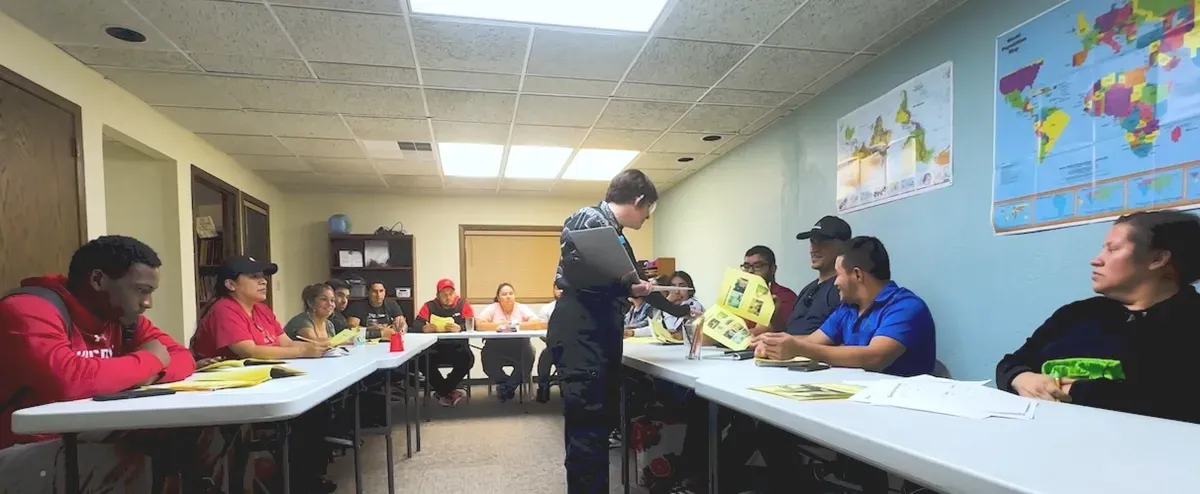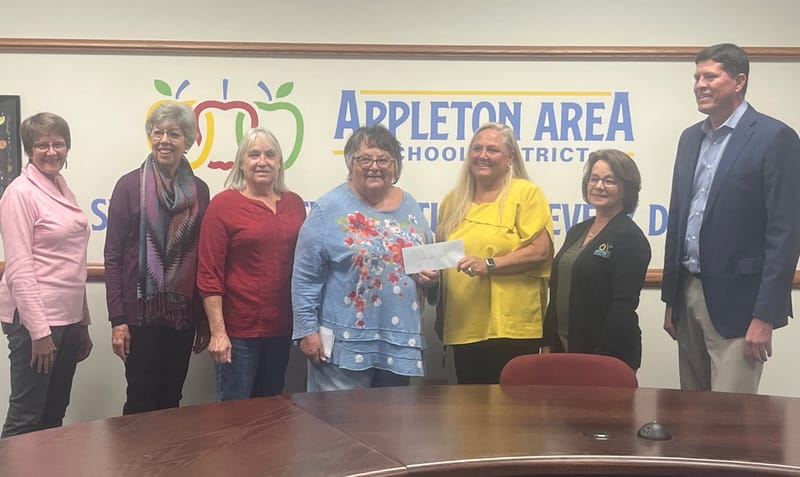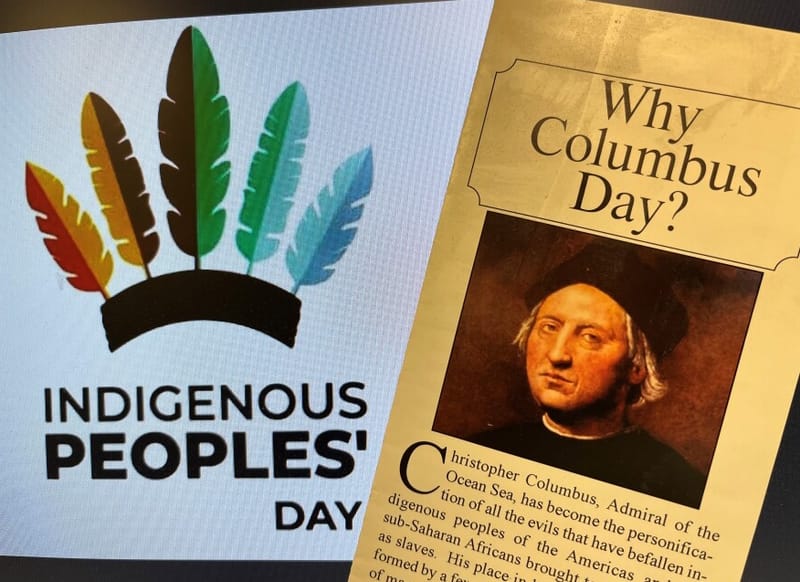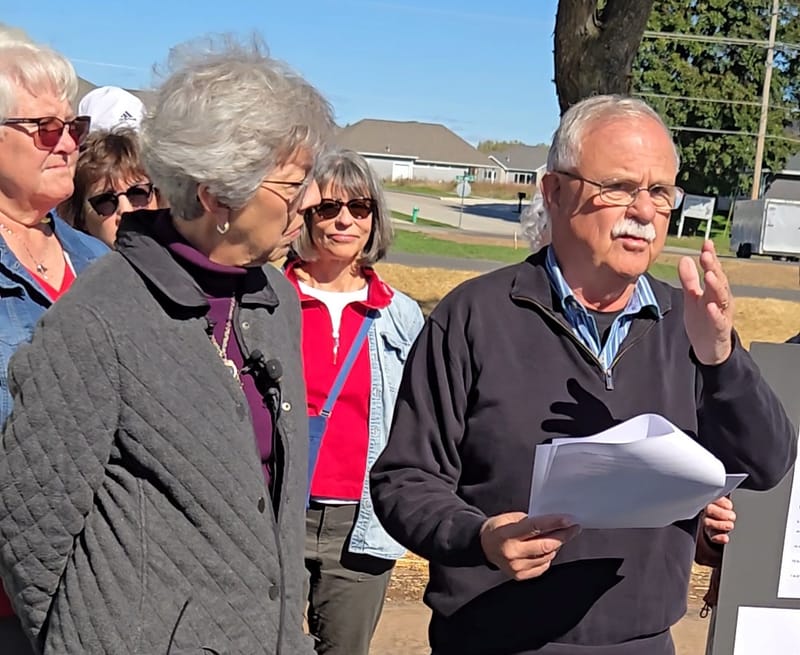Fox Valley Literacy seeks to eliminate barriers to settled lives
Immigrants must not only learn a new language and find work, they must learn the basic skills of living in American society
Brain Leone Tracy believes that the key to a healthy community is thriving citizens.
At Fox Valley Literacy, where he has served as Executive Director for the past six years, that is always the ultimate goal.
But, he says, most people who come through their doors in downtown Appleton are just looking to survive. Until they develop the basic skills to do so, thriving is just an aspiration.
Literacy in the organization’s name carries a lot of weight and takes on many meanings. While it is true that many people are there with the very specific goal of learning to read and communicate in English, Leone Tracy says there are many other sub-categories of literacy.
“What barriers are you facing?” he says. “And what literacy do you need to overcome those barriers?”
Among the types of literacy his organization tries to impart are financial, health, digital, even cultural literacy. Because nearly 90 percent of Fox Valley Literacy’s students are immigrants, all of those are essential skills – beyond simple language proficiency – to navigate American culture and become settled in the community.
“The majority of this is survival skills,” he says. “I wish we could spend more time right away on, like, what’s your dream? Or what’s going to help you thrive in your life, to help you make this really your home. But one of the worst things would be starting off with the wrong expectations because that’s a great way to fail fast.
“So we need to work on that understanding that you’re going to have to be patient because it will take years for you to be fluent.”
Leone Tracy says that, until those basic skills are met, until, say, a refugee new to the country learns to go to a doctor and understand health directives or how to manage a bank account or a security deposit on an apartment – or any number of other daily routines native-born Americans are mostly adept at – they will never have the foundation on which to begin building a healthy, settled life.
A ‘wild amount’ of work being done
Fox Valley Literacy has been around for more than three decades, the last 12 in their building on East Franklin. Two years ago, with the aid of pandemic relief funding, they bought the building. Its garden-level offices and study rooms are tucked away down narrow hallways. Though the space seems confined, it actually encompasses eight classrooms, including one large one that can hold up to 25 people.
“We don’t try to make everyone come to us,” Leone Tracy says. “Transportation is often a challenge. Some people have two jobs. We get them started here but a lot of our tutors meet the students in libraries or coffee shops and we host classes at a variety of other places throughout the community.”
The outreach is impressive but, Leone Tracy suggests, not nearly enough. Still, FVL logged 13,000 instructional hours in 2024. The 708 students they served last year represented a 56 percent increase from the previous year. Among those, 10 became U.S. citizens; 25 others studied for the citizenship test; 273 received one-on-one tutoring; and 582 more learned in group settings.
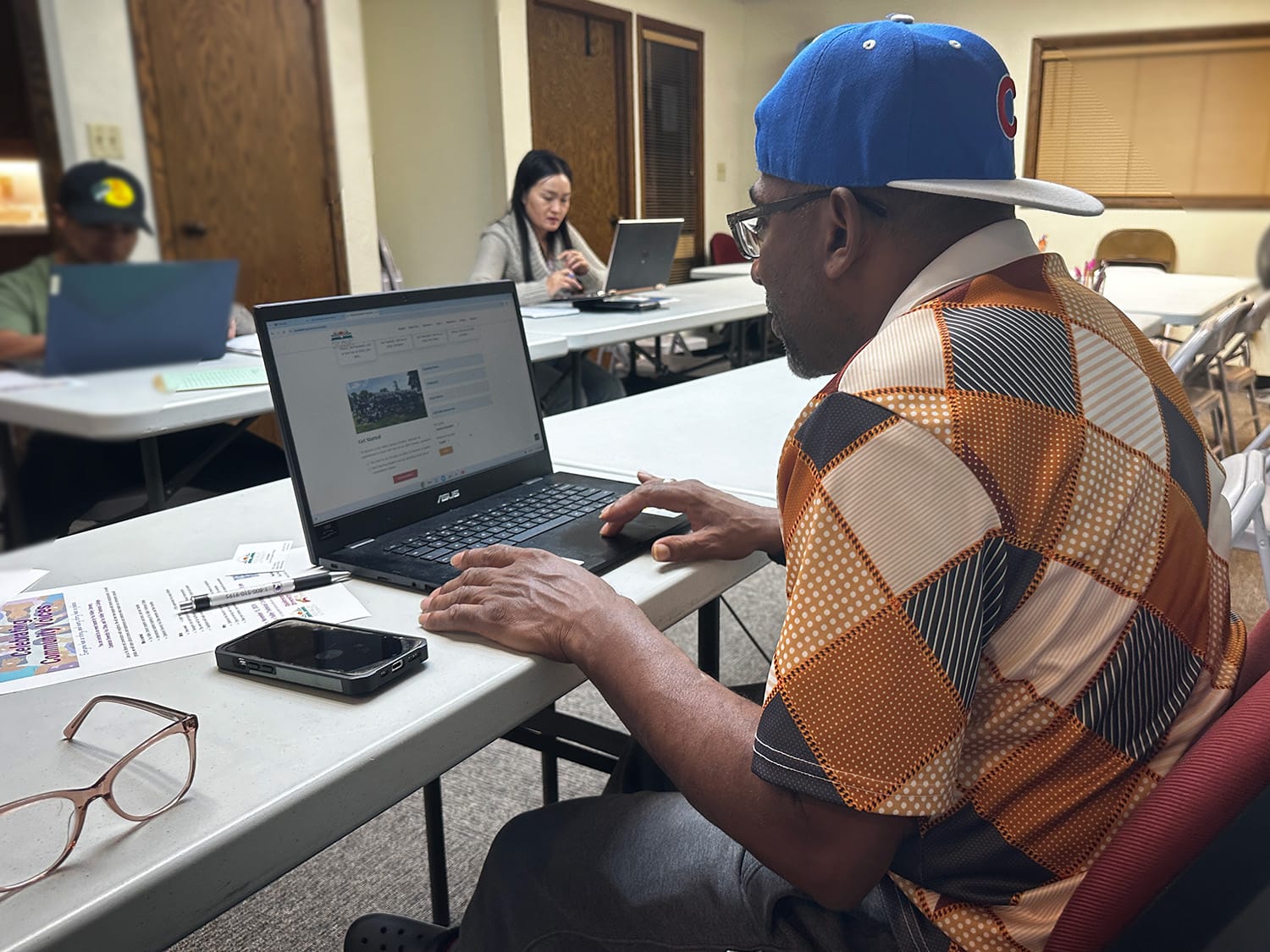
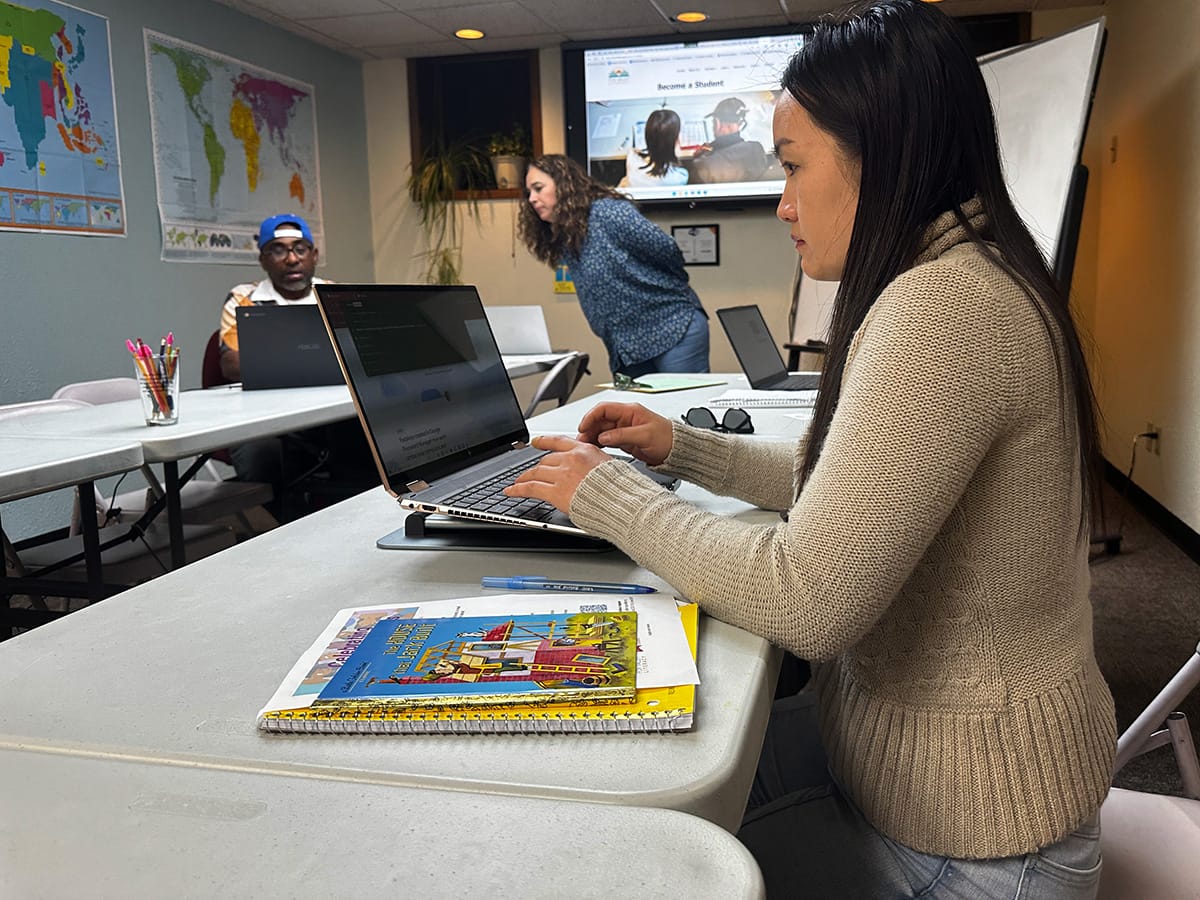
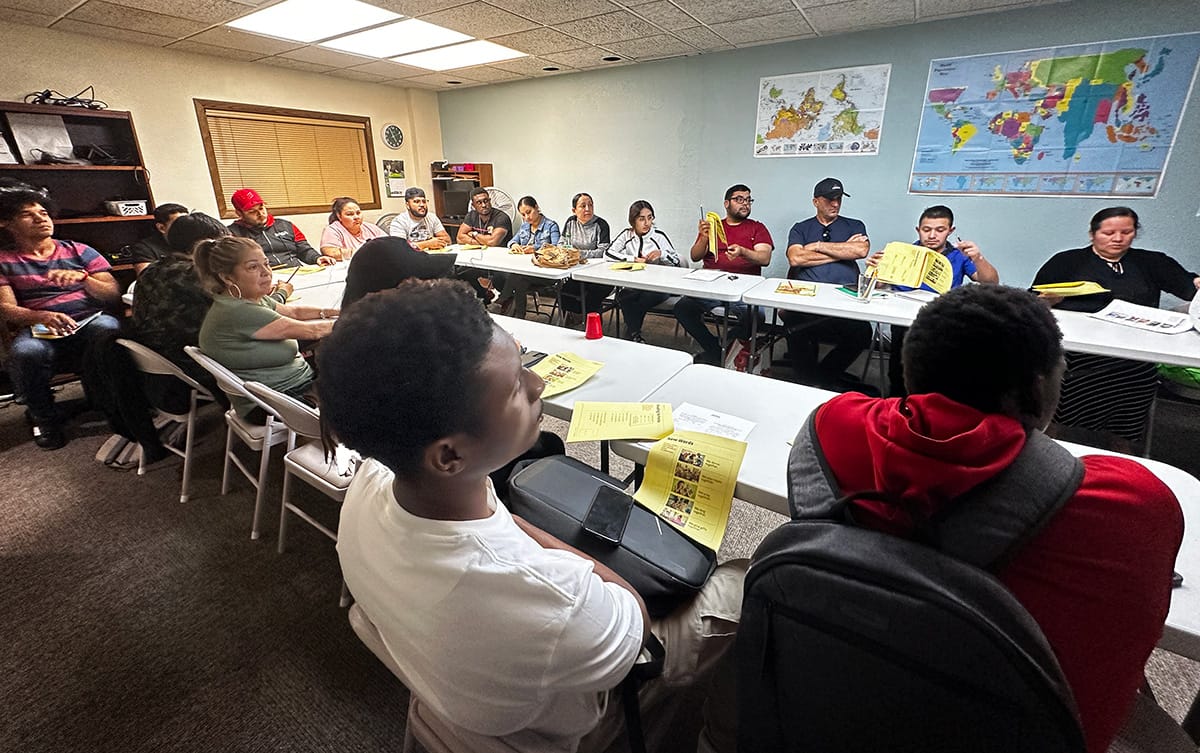
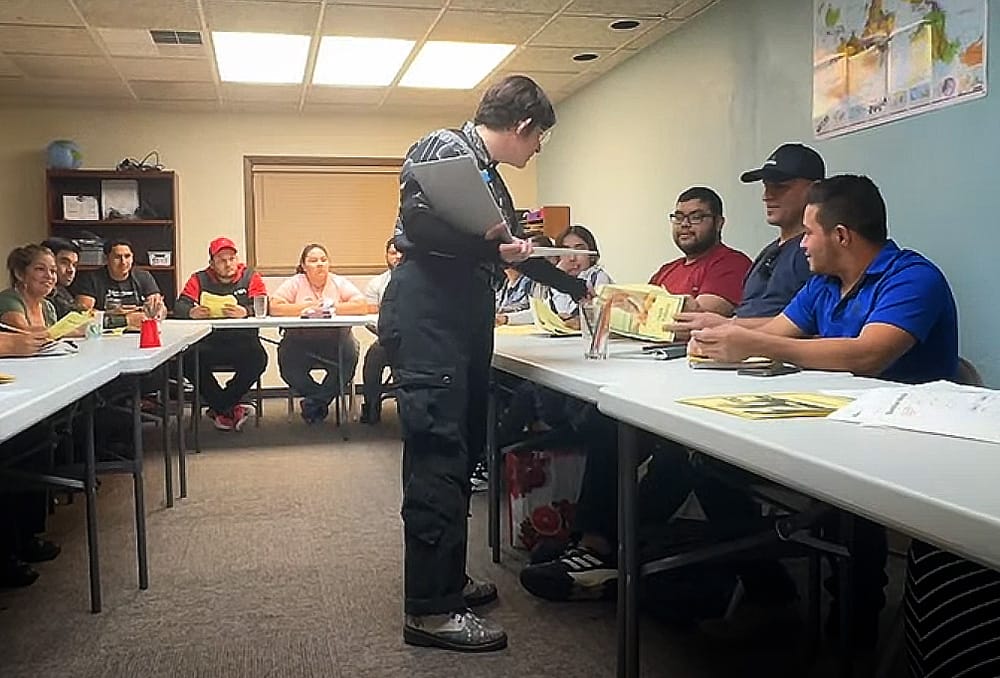
“It’s phenomenal,” Leone Tracy says. “There’s a wild amount of work that gets done here. But we’re the only literacy organization in the area active right now. So we have yet to meet the need.”
One in seven Wisconsinites lack basic literacy skills; 12,000 in the area suffer from low literacy skills. More than 1,500 families in the Appleton school district requested non-English materials be sent home with students. And FVL also covers Waupaca as well as northern Winnebago and Calumet Counties. Leone Tracy says many more could probably use their services but because of the stigma opt not to.
Almost all of FVL’s funding comes from non-governmental grants, a relief to Leone Tracy, given the Trump administration’s gutting of so much federal largesse, including for programs that serve the underprivileged. United Way and the Basic Needs Giving Partnership provide a large portion of Fox Valley Literacy’s revenue. A lot of that comes through US Venture.
FVL employs six full-time people, some of whom also serve as tutors. The rest – some 234 volunteers in 2024 – contributed nearly 12,000 hours last year. Leone Tracy says his organization is constantly recruiting and using word-of-mouth to draw in more people. Volunteer Fox Cities and Curative Connections are a funnel for many tutors. His six staff members speak, variously, Spanish, Hmong, Mandarin, French and Arabic but he stresses that volunteers need no teaching experience and no foreign language skills.
“Some of the curriculum is very well written,” he says. “It’s surprising how much you can do without a shared language. It’s mostly just through immersion.”
Tutoring is not easy work, he says. That is why the training – covering everything from understanding different cultures to articulating expectations to, of course, effective tutoring techniques – is so critical.
Leone Tracy says many tutors work with just one or two students over a long period of time and maintain friendships after their working relationship ends.
Perhaps because tutors are engaged in something they are passionate about, they are more willing to endure the frustrations and difficulties of the work. Leone Tracy says the retention rate is around 80 percent, compared to an average rate of 65 percent for other volunteer work.
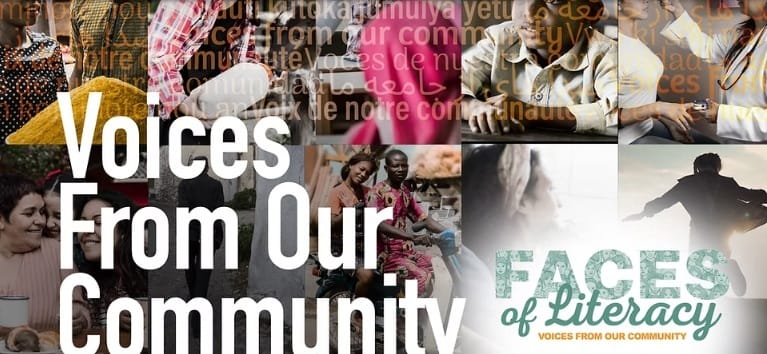
‘A more sustainable life’
Refugees landing in a new land and new culture are navigating a lot of stresses and a lot of imperatives. But the most common purpose served by Fox Valley Literacy is employment.
Because such a large portion of its students are either pre-literate or suffer from limited English language skills, those things have to be the initial emphasis. But the end game for so many of these students is to find and keep a job.
And since every individual’s needs are unique, the tutoring must be tailored to meet those needs. The work being done at Fox Valley Literacy is always fluid, always contingent.
“So we have different types of math curriculum, for example,” Leone Tracy says. “If you’re an accountant who has 30 years of experience and has their masters in their home country and they’re working in a manufacturing plant right now, there’s a curriculum that can help them target that language first. So don’t maybe learn all of English first; learn the basics for your work first and that will get you to a more sustainable life faster.”
Digital literacy is another key function of FVL. Leone Tracy says that nearly all jobs for people returning to the workforce post-Covid require some computer skills or new computer skills.
And immigrants must not only learn a new language and find work, they must learn the basic skills of living in American society. For folks coming from refugee camps in, say, Afghanistan, that might mean being able to read and understand medication labels or how credit works in the United States or how to buy a house or how to open a bank account. There are classes at FVL designed to address these needs.
“I want you to succeed,” Leone Tracy says. “And my definition of ‘succeed’ is usually framed by what your goals are. We do use some standardized testing for reading scores and tracking progress but we generally don’t talk about people moving up levels because if you’re getting what you need, we did our job. If you pass a test with flying colors and you can’t hold down a job, we need to know what’s missing.”
‘It’s just heartbreaking’
One of the unique programs FVL has recently offered falls outside of some of its more standard objectives. Rita Moua has held Hmong Family classes designed to bring generations of a Hmong family together in shared culture. Many second- and third-generation Hmong have grown up acculturated to Western society while many original Hmong immigrants have never learned to speak English. The focus of this program, ironically, is teaching the English-speaking younger generations Hmong, both because it is a dying language and also to connect the generations within the Hmong community.
“The incidence of mental health challenges in the Hmong community is going up sharply,” Leone Tracy says. “It has been causing bigger intergenerational drift because they can’t speak to their grandparents and that impacts their ability to lead a healthy life.
“So you’re not connected to your family culture but in the dominant culture you’re not necessarily visible there, either.”
While it’s true that FVL receives no federal government grants and thus, has largely escaped the Trump administration’s assaults on programs that serve to shore up the underclass and needy, it was severely impacted by the (probably illegal) cancelling of $400 million dollars in AmeriCorps grants along with more than a thousand programs and the firing of 32,000 workers, one of whom was on a nine-month contract with Fox Valley Literacy teaching family literacy.
“All of a sudden one day we get an e-mail and they’re like, Crystal has to leave because she’s no longer getting paid,” Leone Tracy recalls of the April surprise. “Like just on the chopping block just like that. It was just so shocking and disruptive.”
Furthermore FVL has paid for her services and will not receive any compensation for that. Leone Tracy mentions a resettlement organization called World Relief that he has worked with that had already done nearly a million dollars worth of work for the government and has not gotten paid and also had to lay off half of its staff.
For people like the volunteers and staff at FVL who work with refugees and immigrants on a personal level, the dehumanization they see emanating from the Trump administration is particularly troubling.
Leone Tracy says he sees immigrants being treated as disposable and calls the Trump administration’s directives to people to “self-deport” abhorrent.
“It’s just heartbreaking. These people are literally chasing the American dream,” he says. “They came here because it was supposedly safer and they could make their own way. We have one person who was a doctor in her home country and was losing over 90 percent of her paycheck to the government and she’s here washing dishes and sending part of that money back but she can’t even go visit her family for seven years because of the way she left.
“Some of the people coming here are doctors and CPAs and engineers. Like these are the people who could be filling needs in the community. It’s nuts that we’re punishing the people who are most committed to the American dream.”
Because ICE has become a legitimate concern in many communities, Leone Tracy says FVL is much more mindful, though he has yet to detect a presence near the premises. Still, caution is the catchword and Fox Valley Literacy chose not to publish photos of the essay writers in its annual Faces of Literacy booklet this year. Instead they had local musicians like Christopher Gold write songs to accompany each individual essay. Leone Tracy hopes that it is perhaps through such personal stories and through music that people will begin to cross boundaries and find the humanity in people just seeking to make new lives.
“I want people to understand the actual impact on humans, on our neighbors, on the people who aspire to make (the Fox Valley) even richer,” he says. “I’m not from here but I love the area. And, yeah, so do these people too and they want to make a life here.
“And we’re telling them they’re nothing.”

Fox Valley Literacy seeks to eliminate barriers to settled lives © 2025 by Kelly Fenton is licensed under CC BY-NC-ND 4.0


